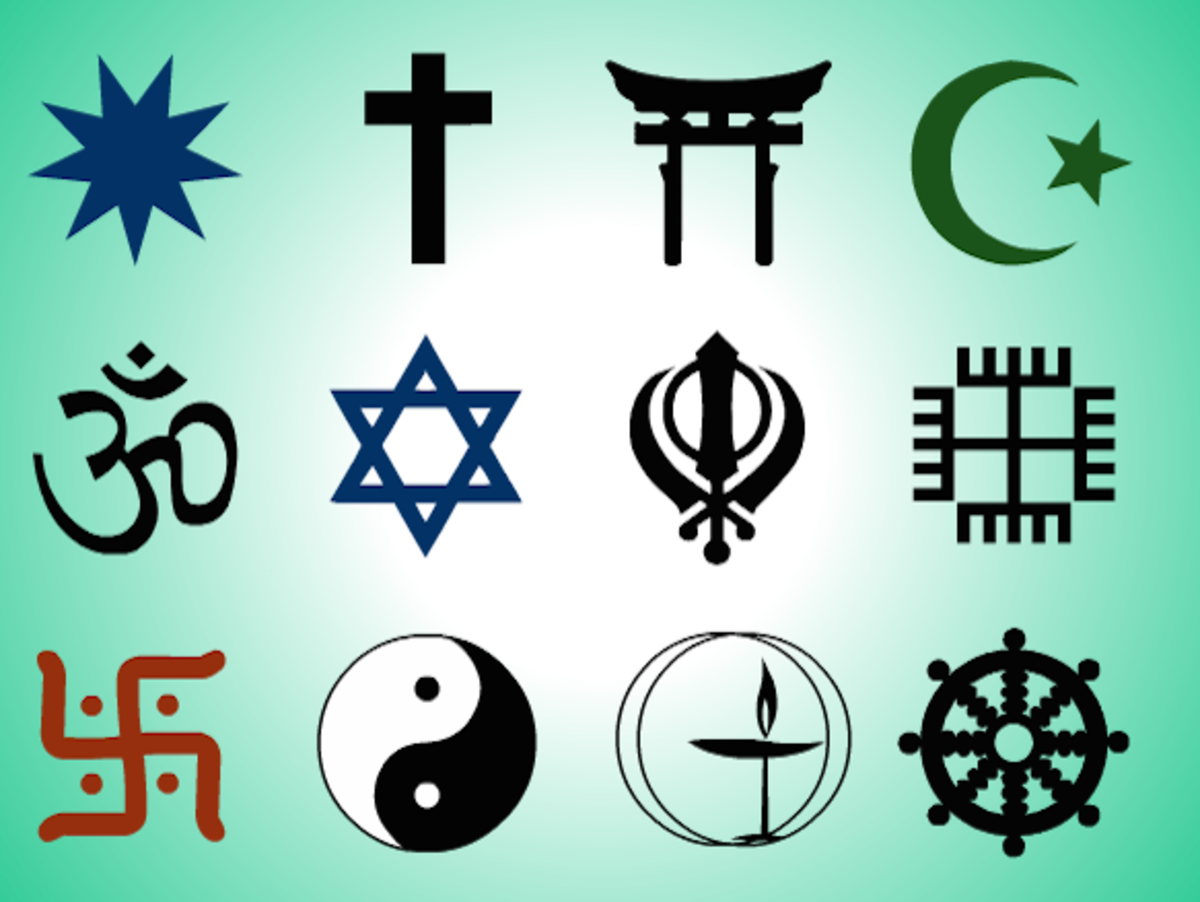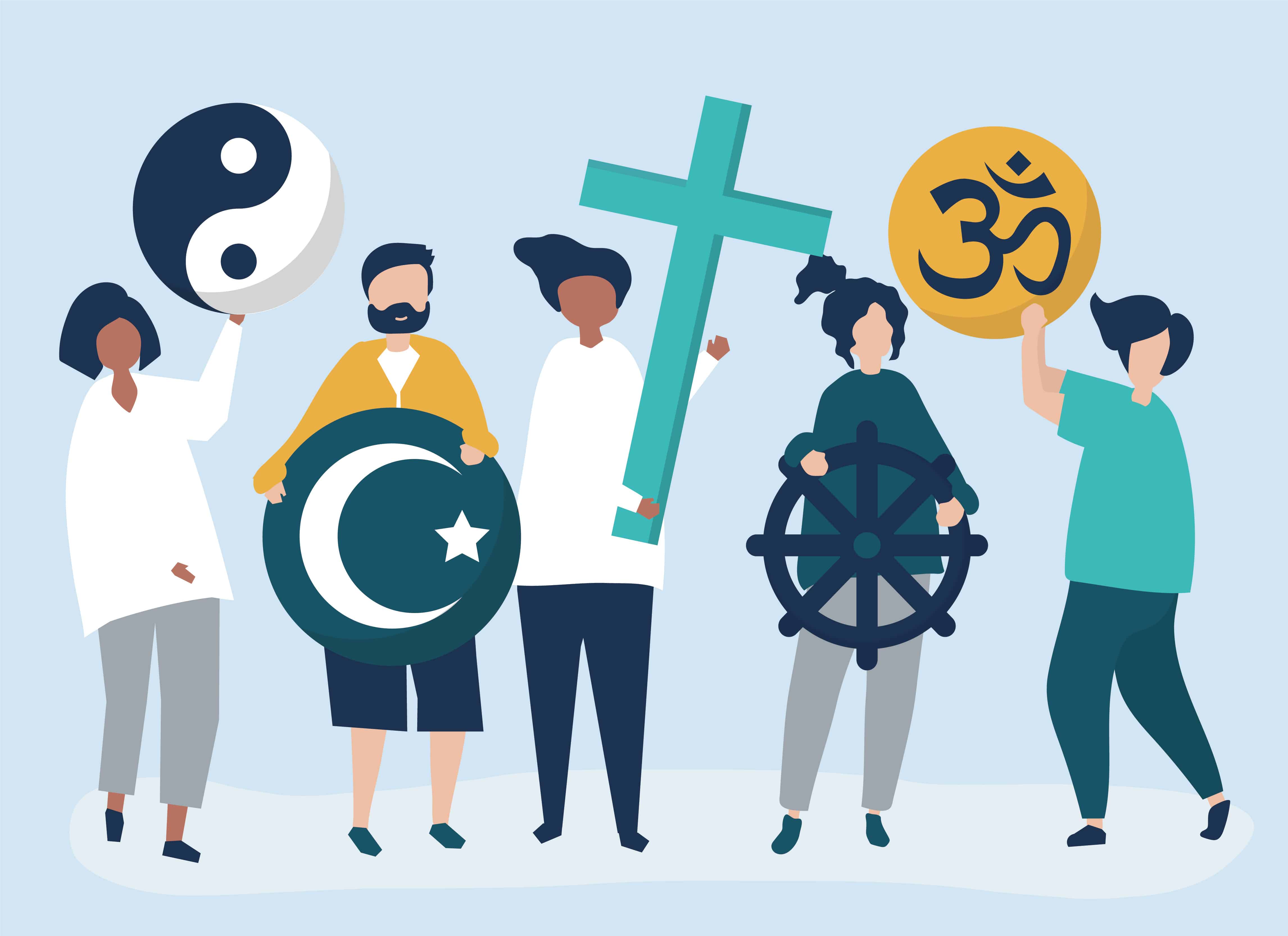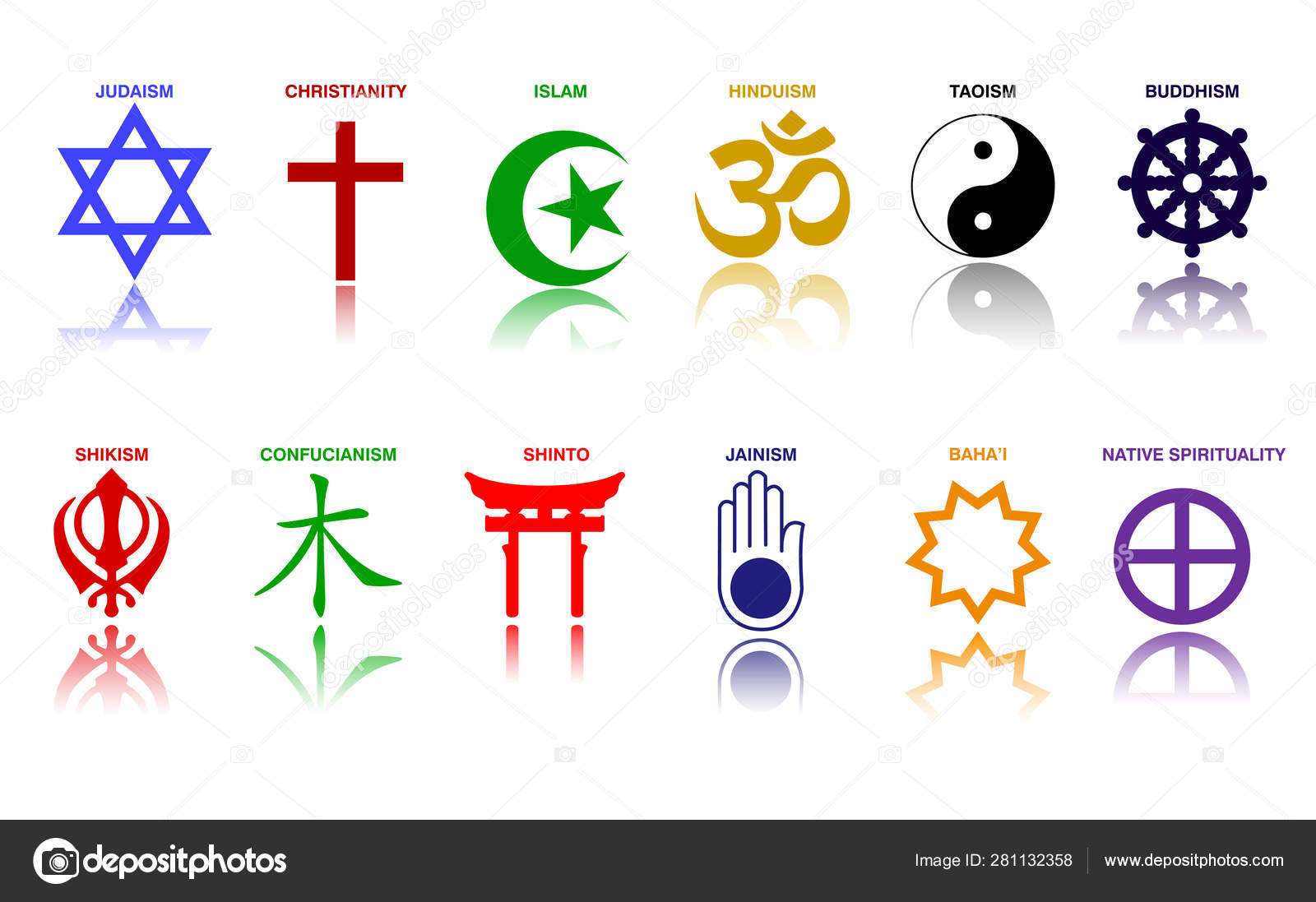Discovering What Religion Is In Nigeria - A Spiritual Mix
Nigeria, a nation located in West Africa, holds a truly remarkable mix of spiritual beliefs and practices. It's a place where faith isn't just something people do on a Sunday or Friday; it's a very big part of daily existence, shaping how communities live, how folks interact, and even the stories they tell. The country's spiritual makeup is quite varied, with different traditions living side-by-side, each contributing to the unique feel of the place.
You see, the way religion works in Nigeria actually helps make the culture what it is. It's a big part of people's identities, and it helps communities stay connected. This isn't just about what's written in books; it's about how people experience their beliefs every single day, in their homes, their neighborhoods, and their towns. The different faiths present there truly reflect the long history, the different ways of life, and the social aspects that make Nigeria so special, you know?
So, if you've ever wondered about the spiritual heart of this amazing country, you're in the right spot. We're going to take a closer look at the different belief systems that have taken root here, from the long-standing traditions to the faiths that arrived more recently, and how they all play a part in the everyday life of the people. It's almost like a colorful quilt, where each piece, though different, adds to the overall beauty.
- Michelle Rodriguez And
- Everything I Hate About You Three Days Grace
- Jack Antonoff
- David Fumero
- Alexandra Daddario
Table of Contents
- What Religion is Most Common in Nigeria?
- How Did Christianity Become Popular in Nigeria?
- What Religion is Influenced by Education in Nigeria?
- What Religion is Intertwined with Nigerian Culture?
- Understanding What Religion is There Through Surveys
- What Religion is Seen in Public Life in Nigeria?
- The Broad Spectrum of What Religion is Practiced in Nigeria
- Looking at What Religion is Present - Beyond the Main Ones
What Religion is Most Common in Nigeria?
When you consider the religious makeup of Nigeria, it's actually quite interesting how things balance out. The country is home to a really wide range of beliefs, but two main ones stand out in terms of the number of people who follow them. According to some of the latest guesses, Islam holds the spot as the largest belief system, with a little over half of the population identifying as Muslim. This is a pretty big number, you know, showing just how deeply rooted this faith is in many parts of the country.
Within Islam, there are different branches, and in Nigeria, Sunni Islam makes up a huge portion of that group, about 95 percent of the Muslim population, with Shia Islam making up the other 5 percent. This gives you a bit of an idea of the specific flavors of Islam that are most widely practiced. It's not just one big group; there are these smaller distinctions that matter to people. This makes the religious scene quite rich, actually.
On the other side of the coin, Christian beliefs are also very widely held, making up around 45 percent of the total population. So, you have these two very large groups, Islam and Christianity, that together account for the vast majority of people's spiritual affiliations. It's a situation where both faiths have a really strong presence and a lot of followers, shaping the feel of the nation in very significant ways. This balance is a pretty unique characteristic of what religion is like in Nigeria.
How Did Christianity Become Popular in Nigeria?
Christianity, which is quite popular and you see it advertised a lot in Nigeria, actually has a specific arrival story. It wasn't always there, of course. This faith was brought into the country during the middle part of the nineteenth century. It came with very dedicated missionaries, mostly from Britain, who traveled there with the purpose of sharing their beliefs. So, you can imagine, this was a time when new ideas and ways of thinking were being introduced from outside. It was, in a way, one of the things that began to change the cultural landscape.
These missionaries, with their strong convictions, played a big part in setting up churches and schools, which helped the faith spread. Over time, what started as something brought from elsewhere really took root and grew. It became a significant part of the country's spiritual life. The fact that it's now so widely seen and heard about, even advertised, speaks to how much it has grown and become a part of the daily fabric of Nigerian society. It's a pretty clear example of how historical events can really shape what religion is widely practiced in a place.
The growth of Christianity wasn't just a simple process; it involved a lot of interactions and adaptations as it blended with existing ways of life. It's interesting to think about how something introduced from outside can become such an integral part of a nation's identity. This historical journey helps us understand why so many people in Nigeria today identify as Christian, and why it holds such a visible place in public life, too.
What Religion is Influenced by Education in Nigeria?
When we look at how religion and education mix, especially within Christian traditions, there's an interesting pattern that shows up. It seems that people who have a lot of schooling are generally just as committed to their religious practices, if not more so, than those who have less formal education. This tendency for Christian college graduates to keep up their religious observance is a bit different from some other places, perhaps, but it's a notable point when you consider what religion is like for educated folks in Nigeria.
This suggests that for many Christians, getting a higher education doesn't necessarily mean moving away from their faith. Instead, it might even strengthen it, or at least it doesn't weaken their connection to their spiritual community. This is something that researchers have looked into, trying to figure out the relationship between learning and religious practice. It really makes you think about how different aspects of life, like schooling, can interact with people's deeply held beliefs. It's not always a straightforward relationship, you know, but in this case, it seems education and observance can go hand-in-hand.
So, when you consider the overall picture of what religion is doing in Nigeria, this connection between education and religious commitment, especially within Christian groups, adds another layer of detail. It tells us something about the resilience of faith and how it can be maintained, or even grow, among people who have pursued higher learning. It's a fascinating area to explore if you're trying to get a full picture of the country's spiritual landscape.
What Religion is Intertwined with Nigerian Culture?
It's pretty clear that religion and the way of life in Nigeria are very closely linked; they're almost like two threads woven together in a fabric. Religion has played a really big part in making the culture what it is today, and it's also been a source of how people see themselves and how they stick together as a community. This isn't just about formal religious institutions; it's about how beliefs show up in daily customs, celebrations, and even how people treat one another. It's a bit like the very air people breathe, in a way.
Each of the major faiths present in Nigeria, whether it's Christianity, Islam, or the older traditional African religions, has very deep roots. They're not just surface-level practices; they go down to the core of how people understand the world and their place in it. This means that when you're looking at Nigerian culture, you're almost certainly going to see the influence of these different spiritual traditions. They help explain why certain things are done in certain ways, or why certain values are held dear. It's really quite a profound connection, you know?
The diversity of religions in Nigeria truly reflects the rich cultural, historical, and social aspects of the country. It’s a land with a remarkable variety of beliefs, and these beliefs are like mirrors, showing us the many different facets of Nigerian life. This close bond between faith and culture means that to really get a handle on what religion is like in Nigeria, you also need to appreciate how it shapes and is shaped by the everyday experiences of its people.
Understanding What Religion is There Through Surveys
To truly grasp the picture of what religion is present in a place like Nigeria, researchers often turn to surveys. These surveys help us get a sense of the numbers and trends, like how many people identify with a certain faith. For instance, studies that measure religion using different ways of gathering information, like telephone calls or online questionnaires, help paint a clearer picture. It's like trying to get a snapshot of a very large, moving crowd, you know?
Interestingly, some research suggests that people who know a lot about a particular religion, even if they don't follow it themselves, tend to have a more positive view of those who do. For example, the text mentions that Buddhists generally get a good rating from those who understand their faith, even if they aren't Buddhist. This could suggest that when people learn more about what religion is practiced by others, it can lead to more favorable views. This kind of insight, while not directly about Nigeria, helps us think about how understanding and knowledge play a part in how different religious groups interact anywhere in the world.
The religious landscape of places, like the United States, for example, is always changing quickly, and the same can be said for Nigeria. Using surveys helps keep track of these shifts. For instance, Pew Research Center's telephone surveys in 2018 and 2019 found that 65% of American adults described themselves in a certain way religiously. While these figures are for the US, the *method* of using surveys to track changes is relevant to how we might try to understand the shifts in what religion is present in Nigeria over time. It’s a way of taking the pulse of a nation’s spiritual life, basically.
What Religion is Seen in Public Life in Nigeria?
Religion in Nigeria doesn't just stay within the walls of places of worship or inside people's homes; it really shows up in public life, too. You see its influence in many different areas, from how communities are organized to how decisions are made. It's not uncommon to find religious leaders playing a part in community discussions, or to see religious festivals being celebrated openly. This presence in the public sphere is a big part of what religion means in the country.
For example, the text talks about how religion significantly helps shape Nigerian culture and society. This isn't just a small influence; it's a major force. The fact that Christianity is the most advertised religion, for instance, shows how visible it is in everyday life. You might see billboards, hear broadcasts, or notice other forms of public expression of faith. This kind of visibility means that religious beliefs are not just personal matters; they are part of the collective experience of the nation, you know?
Even in government, figures can be analyzed to reflect the religious affiliations of public servants. While the text specifically mentions figures for Congress based on Pew Research Center analysis of data collected by CQ Roll Call for US members, it highlights how religious identity can be a factor even in political structures. This suggests that the impact of what religion is practiced can extend into the very ways a country is run, showing its pervasive influence across various aspects of public existence.
The Broad Spectrum of What Religion is Practiced in Nigeria
Nigeria is truly a society where you find Islam, Christianity, and those older, traditional African religions all present. This mix creates a spiritual environment that is, in some respects, quite rich and varied. It's not a place where one single belief system dominates everything; instead, there's a constant interplay between these different ways of understanding the world and connecting with something beyond oneself. This broad spectrum is a defining feature of what religion is in Nigeria.
The presence of indigenous religions alongside the more widely known global faiths adds another layer of depth to the country's spiritual makeup. These traditional practices often involve a deep connection to the land, ancestors, and a unique understanding of spirits and the natural world. While they might not have as many followers as Islam or Christianity, their influence can still be felt in various cultural practices and beliefs, even among those who primarily identify with one of the larger faiths. It’s a pretty unique blend, actually.
So, when you try to get a full picture of what religion is in Nigeria, it's important to remember that it's not just about percentages and numbers. It's about the living traditions, the historical journeys, and the ways these different beliefs interact and sometimes even borrow from each other. It's a dynamic and ever-evolving landscape of faith, where the past and the present constantly meet to create something truly distinctive. This vibrant mix is what makes studying religion in Nigeria so fascinating, really.
Looking at What Religion is Present - Beyond the Main Ones
While Islam and Christianity are the most prominent faiths when we talk about what religion is found in Nigeria, it's also worth remembering that the country's religious diversity goes a little beyond just these two. The mention of "some other religion" categories in survey data, even for a small number of people who didn't provide their current religion, hints at the fact that there are always smaller groups or individual beliefs that might not fit neatly into the main boxes. It's a reminder that human spirituality can take many forms, you know?
The text also refers to the primary researcher for "the world's Muslims, Religion, politics and society" being James Bell, who was the director of international survey research for the Pew Research Center. This kind of global research effort, which looks at how different faiths operate around the world, helps us understand the wider context of religious studies. While his work might focus on Muslims globally, it underscores the detailed efforts made to truly understand the nuances of what religion is for different groups of people, including those in Nigeria.
So, even if the bulk of the population identifies with Islam or Christianity, the subtle mentions of other categories and the broad scope of religious research suggest that the full picture of what religion is in Nigeria is even more intricate than it might first appear. It's a complex tapestry of beliefs, old and new, widely practiced and quietly held, all contributing to the spiritual richness of the nation. This level of detail is pretty important when you're trying to get a complete grasp of things.
- Aubreigh Wyatt
- Jupiter Seaborn Sheeran
- Everything I Hate About You Three Days Grace
- Muhammad Ali Jr
- Offset News

What All Religions Have In Common - LetterPile

Religion Facts | Facts.net

World religion symbols colored signs of major religious groups and